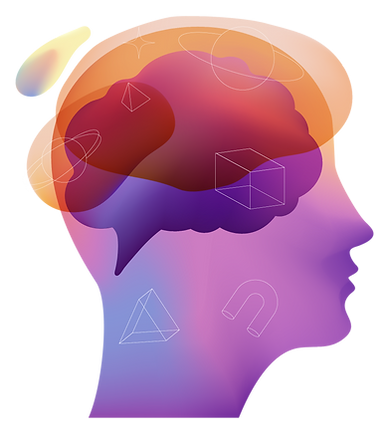Therapeutic Approaches
Natalie offers a range of evidence-based approaches for people of all ages tailored to your unique needs with a focus on adaptive transformation. Her work draws from acceptance and commitment therapy (ACT), cognitive behavioural therapy (CBT), compassion-focussed therapy, and mindfulness practices to help people overcome mental health difficulties, build resilience and navigate life challenges with greater clarity and intention. She also incorporates neuroscience and somatic psychotherapy to support a deeper connection between mind and body. Trauma focused therapy includes desensitisation and reprocessing (EMDR) to facilitate healing from trauma. Integrating approaches creates an holistic and flexible path towards emotional well-being, self-awareness, and lasting change.
Acceptance and Commitment Therapy (ACT)

Acceptance and commitment therapy is a modern, evidence based psychotherapy that helps people build psychological flexibility, that is the ability to stay present and engaged in life, even in the face of difficult thoughts, feelings or experiences. Rather than trying to eliminate or control uncomfortable emotions, which can make them worse, ACT encourages people to accept them as a natural part of being human. Through mindfulness techniques and experiential exercises people learn to observe their inner experiences without judgement and reduce the influence of unhelpful thoughts. A core goal of ACT is to help people clarify their personal values, what truly matters to them, and commit to actions that align with those values, even when faced with internal challenges.
ACT is effective for people of all ages and for a wide range of mental health difficulties, including anxiety, depression, trauma, chronic pain, and stress. By fostering openness, awareness and values based living, ACT empowers people to lead more meaningful and fulfilling lives not by engaging in a battle to control thoughts and feelings and to eliminate discomfort, but by learning to live well with it.
Compassion-focussed therapy and Mindfulness
Compassion focused therapy (CFT) is a soul-deep therapeutic approach designed to help people develop self compassion and soothe the inner harshness often associated with shame, self criticism, and feelings of inadequacy. CFT integrates principles from evolutionary psychology, neuroscience, mindfulness, and CBT to understand how our brains have evolved to experience threat, drive and soothing responses. Many people struggle with an overactive threat system and underdeveloped soothing system leading to chronic stress, anxiety and low self-worth.
CFT helps people cultivate compassion for themselves and others by engaging the soothing system through practices such as compassionate imagery, mindful attention and compassionate self talk.
CFT aims to rebalance the emotional systems and build an internal sense of safety, warmth and acceptance.

EMDR

Eye movement desensitisation and reprocessing is a structured therapy designed to help people process and heal from traumatic experiences and distressing memories.
EMDR focuses on helping the brain reprocess traumatic memories so that they no longer cause intense emotional reactions.
EMDR is effective for treating trauma, anxiety, phobia, grief, obsessive compulsive behaviour and other trauma related conditions. By unlocking the brain's natural healing process, EMDR allows people to feel more present, emotionally balanced, and in control of their lives.
Relationship Based Issues
Relationship based therapies focuses on improving connection, communication and understanding within important interpersonal relationships, including couples, families and parent- child dynamics. Relationship patterns deeply influence emotional well-being and healing often occurs in the context of connection.
Whether addressing conflict, disconnection, or life transitions, relationship based work helps individuals and families develop healthier ways of relating.
Couples therapy supports partners in exploring their emotional needs, improving communication, rebuilding trust, and navigating challenges such as conflict and past hurts.
Family work is about understanding the system, addressing the things that may contribute to tension, behavioural issues or emotional distress to enhance understanding and improve cooperation among family members.
Parenting work offers guidance for managing behaviour and developing secure, respectful and responsive relationships with children grounded in emotional attunement and developmental awareness.
Across all forms, relationship based therapy fosters empathy, emotional safety, and effective problem-solving to help people and families create stronger, more resilient bonds and healthy patterns of connection.

Cognitive-behavioural therapy

Cognitive behavioural therapy is a widely practiced form of psychotherapy that focuses on the connection between thoughts, feelings and behaviour. It's based on the idea that thinking patterns can contribute to emotional distress and unhelpful behaviour and that by identifying and challenging these thoughts people can create change in their lives.
CBT is structured, goal oriented and typically short term making it a practical and effective approach for many mental health problems. Recognising automatic thoughts and replacing them with more balanced and constructive alternatives helps reducing emotional distress and encourages healthier behaviour patterns.
CBT also incorporates behavioural strategies such as exposure, activity scheduling and skill building to support changing in real life situations. Through increased self-awareness and practical skills, CBT helps people gain control over their responses to thoughts and their behaviour, leading to improved emotional well-being and greater confidence in managing life's challenges.






